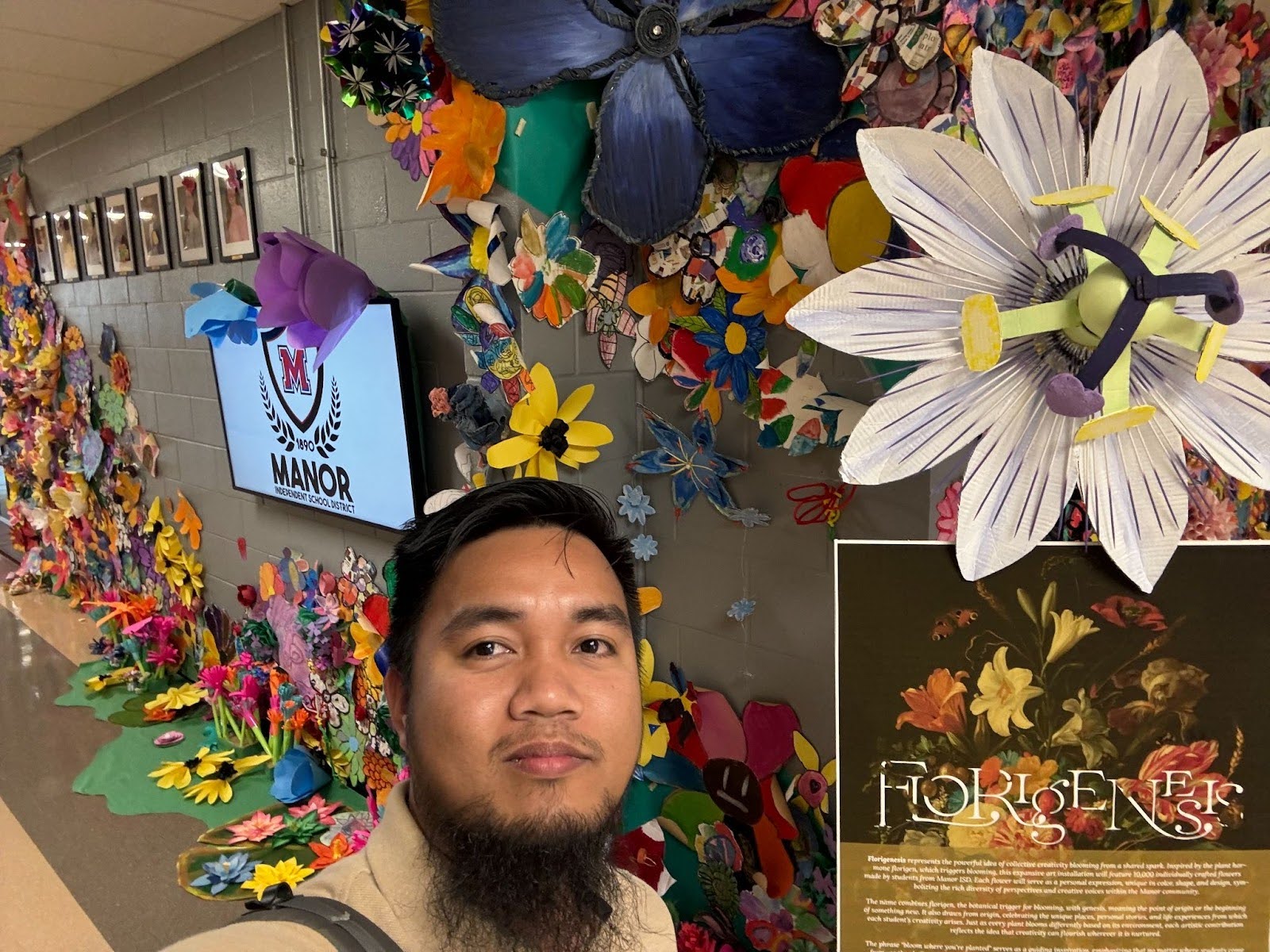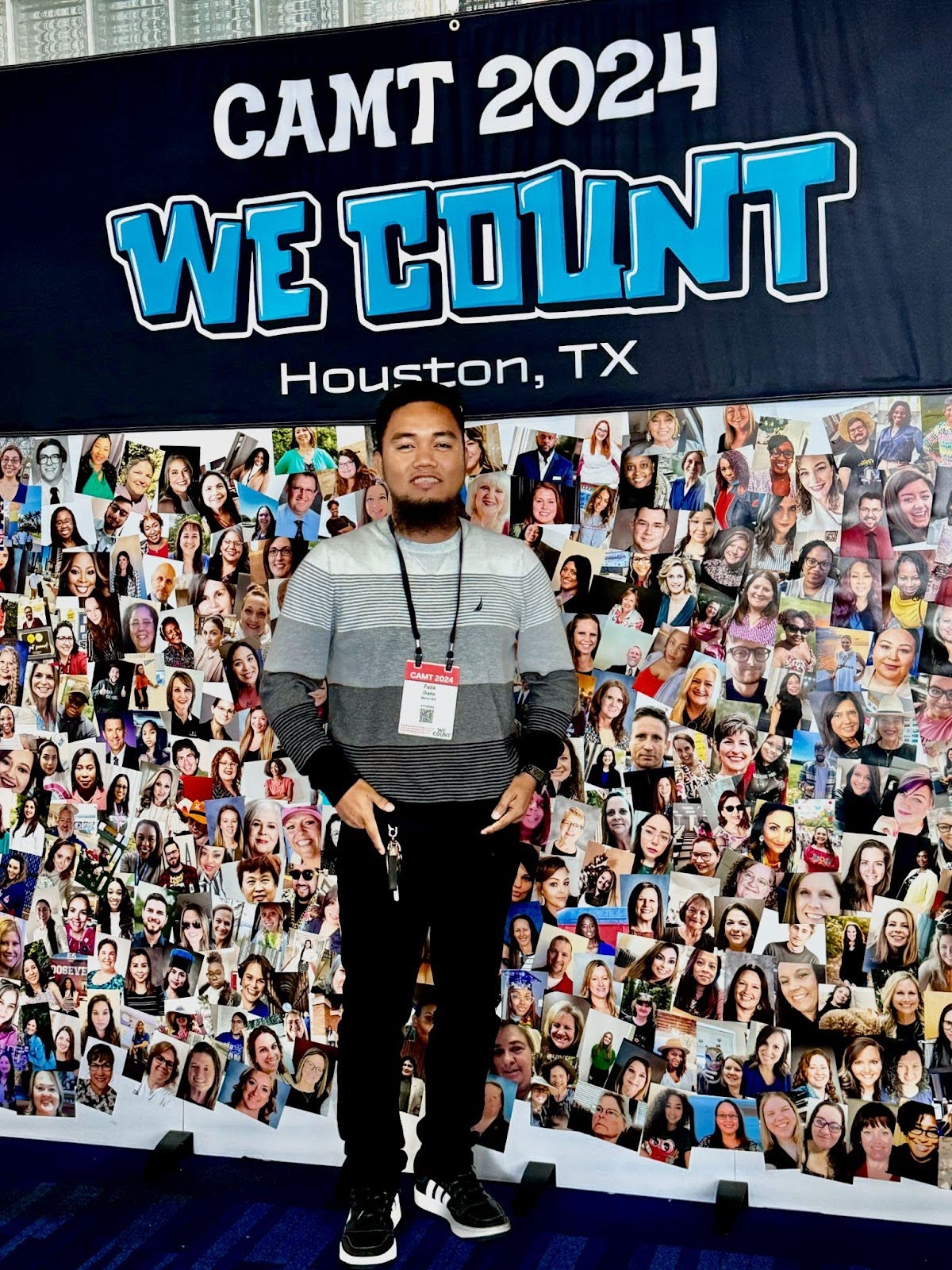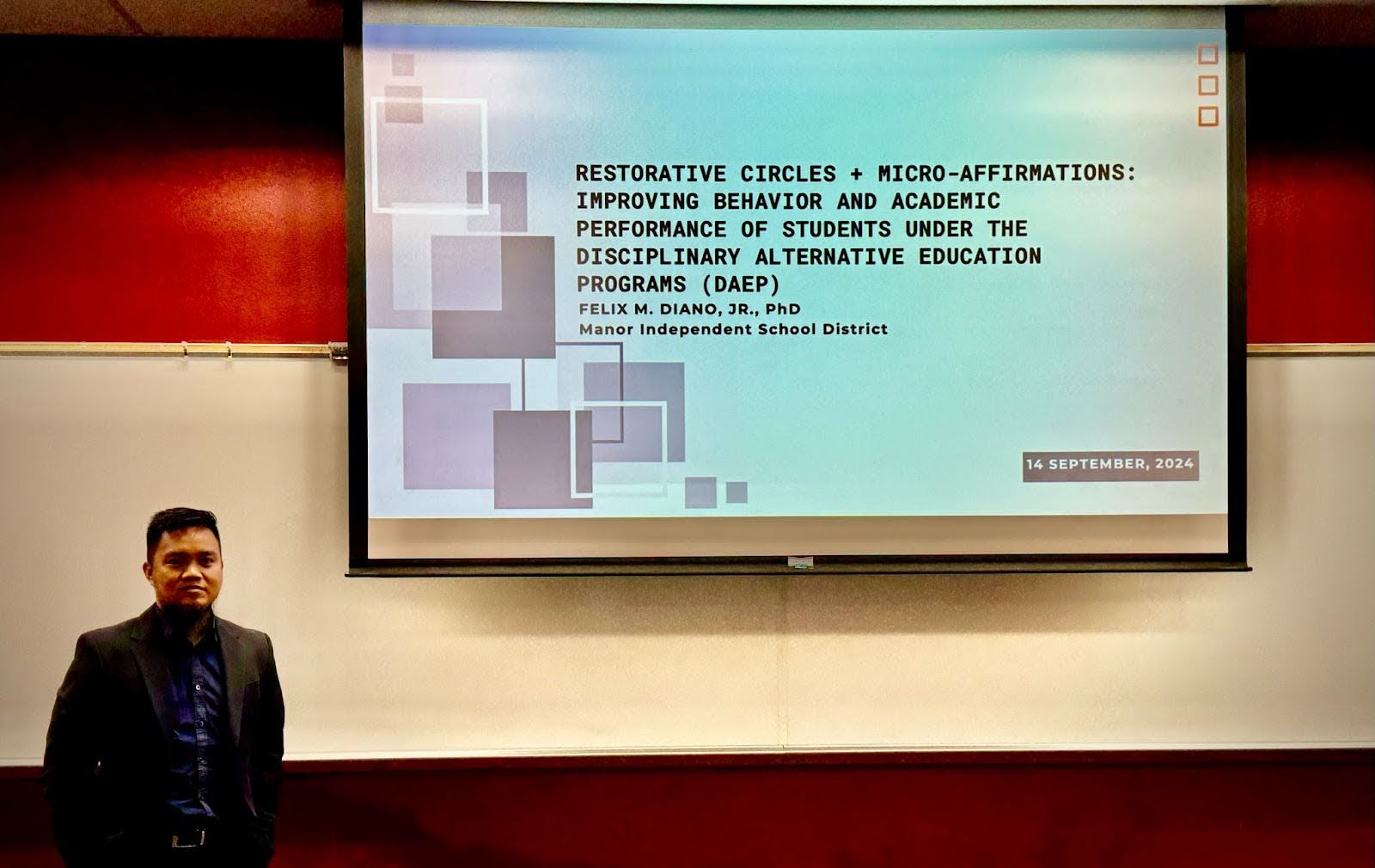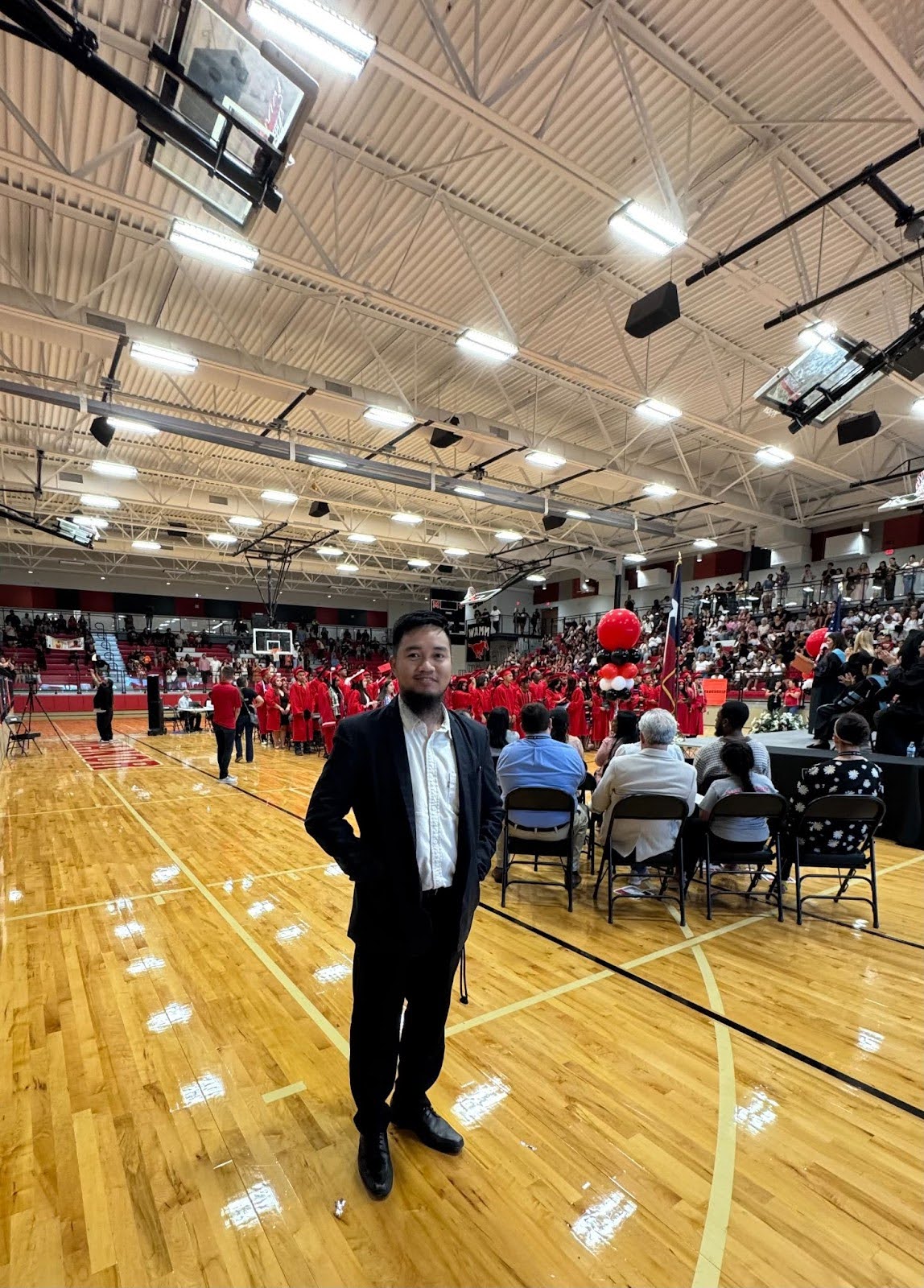
As American schools grapple with the challenge of increasing academic rigor while honoring cultural diversity, one educator has managed to do both—with measurable, replicable success. Dr. Felix Diano Jr., a Filipino educational leader, researcher, and practitioner, exemplifies what happens when research-driven teaching meets a relentless commitment to student achievement. From steering a major university through elite accreditation in the Philippines to boosting math scores in Central Texas, his story is one of global insight applied with local precision.
Accreditation as Transformation: Leading with Quality and Evidence
Before arriving in the United States, Dr. Diano held high-impact roles at the University of the Visayas, including OIC Dean of the College of Education and Campus Administrator. His leadership culminated in the university attaining Level IV accreditation—the highest distinction granted by the Federation of Accrediting Agencies of the Philippines (FAAP) and the Philippine Association of Colleges and Universities Commission on Accreditation (PACUCOA).

“Level IV accreditation doesn’t just affirm quality—it demands transformation,” Dr. Diano reflected. “It required redesigning our curriculum, realigning with CHED standards, mentoring faculty in action research, and consistently outperforming national benchmarks.” Indeed, the achievement placed UV among the country’s top 5% of education programs, according to CHED.
During his tenure, UV also recorded a surge in licensure exam topnotchers and received national recognition for both its teacher education and business programs (The Freeman, 2020; The Green Lancers, 2022). As a result, many of the educators Dr. Diano mentored have ascended to academic leadership roles across Southeast Asia.
Turning Math into a Life Skill: Innovation in the Texas Classroom
Now teaching mathematics in the Manor Independent School District (ISD) near Austin, Texas, Dr. Diano has brought the same level of rigor and contextualization to K-12 instruction. His classes incorporate local economic data—housing affordability, job growth trends, and budget simulations—into algebraic functions and probability models.

“When students graph local housing costs or use slope-intercept form to estimate rent increases, math becomes a life skill,” Dr. Diano explained. This pedagogical approach reflects the call by the National Council of Teachers of Mathematics (NCTM) for relevant, real-world learning experiences (NCTM, 2020).
According to the Texas Education Agency's 2024 report, 85% of Dr. Diano’s students met or exceeded math proficiency standards—up from 72% the previous year, outpacing district and state averages. “It’s about reducing barriers, not just academic but psychological. Math anxiety disproportionately affects multilingual students, and we must address that head-on,” he added.
Research-Backed Strategies for Multilingual Success
Dr. Diano is also a published scholar whose work focuses on instructional leadership, mathematics anxiety, and equity in multilingual classrooms. His studies have appeared in journals such as the International Journal of Multidisciplinary Research and Publications and the Randwick International Journal of Education and Linguistics Science. He has presented at the AMTE-TX Fall Conference and the International Conference on Interdisciplinary Research.

“I’ve found that visual scaffolding and peer collaboration significantly reduce math anxiety in English learners,” he noted, referencing his 2020 study on language-mediated math instruction. These methods have been endorsed by the Learning Policy Institute, which found that culturally responsive practices boost academic outcomes among linguistically diverse students (Darling-Hammond, 2019).
From Classroom to Principalship: Engineering Educational Equity
Currently pursuing U.S. principal certification, Dr. Diano is preparing to scale his impact. His forthcoming initiative, an AI-powered leadership preparation program, blends data analytics with equity-centered school governance. The curriculum includes modules such as “Forecasting Equity Gaps” and “Instructional Leadership in Multilingual Contexts.”

“School leadership must be both data-driven and people-focused,” he said. “We can’t close opportunity gaps without first identifying them through evidence.” His views echo those of the Wallace Foundation (2021), which found that effective principals influence learning outcomes more than any other in-school factor besides teachers.
Credentials and Recognition Across Borders
Dr. Diano holds valid teaching certifications in Texas, New Mexico, Illinois, and the Philippines. He has received multiple awards for his leadership and teaching excellence, including the 2024 International Teaching Service Diamond Award and the Outstanding Educator of the Year from the Instabright International Guild of Researchers and Educators. His résumé includes over 25 academic publications, conference presentations, and editorship roles in peer-reviewed journals.
As he transitions into leadership training and policy design, Dr. Diano’s work remains rooted in one clear philosophy: “Equity isn’t theoretical—it’s actionable. And the best way to prove your impact is to show your results.”
Sources Referenced
- Darling-Hammond, L. (2019). "The Promise of Culturally Responsive Teaching." Learning Policy Institute.
- Wallace Foundation. (2021). "How Principals Affect Students and Schools."
- National Council of Teachers of Mathematics (NCTM). (2020). "Catalyzing Change in High School Mathematics."
- Commission on Higher Education (CHED). Philippines. https://ched.gov.ph
- The Freeman. (2020). "University of the Visayas Ranked Among Top for Business." https://www.philstar.com
- The Green Lancers (2022). The Green Lancers: The Institutional Magazine of the University of the Visayas-Cebu. https://www.uv.edu.ph/green-lancers/#info
- Texas Education Agency. (2024). Manor ISD Accountability Summary.
Marisol Vega is an independent journalist whose writing focuses on education, equity, and leadership. Her work has appeared in Learning Policy Digest, Global Teacher Weekly, and EdWeek.







